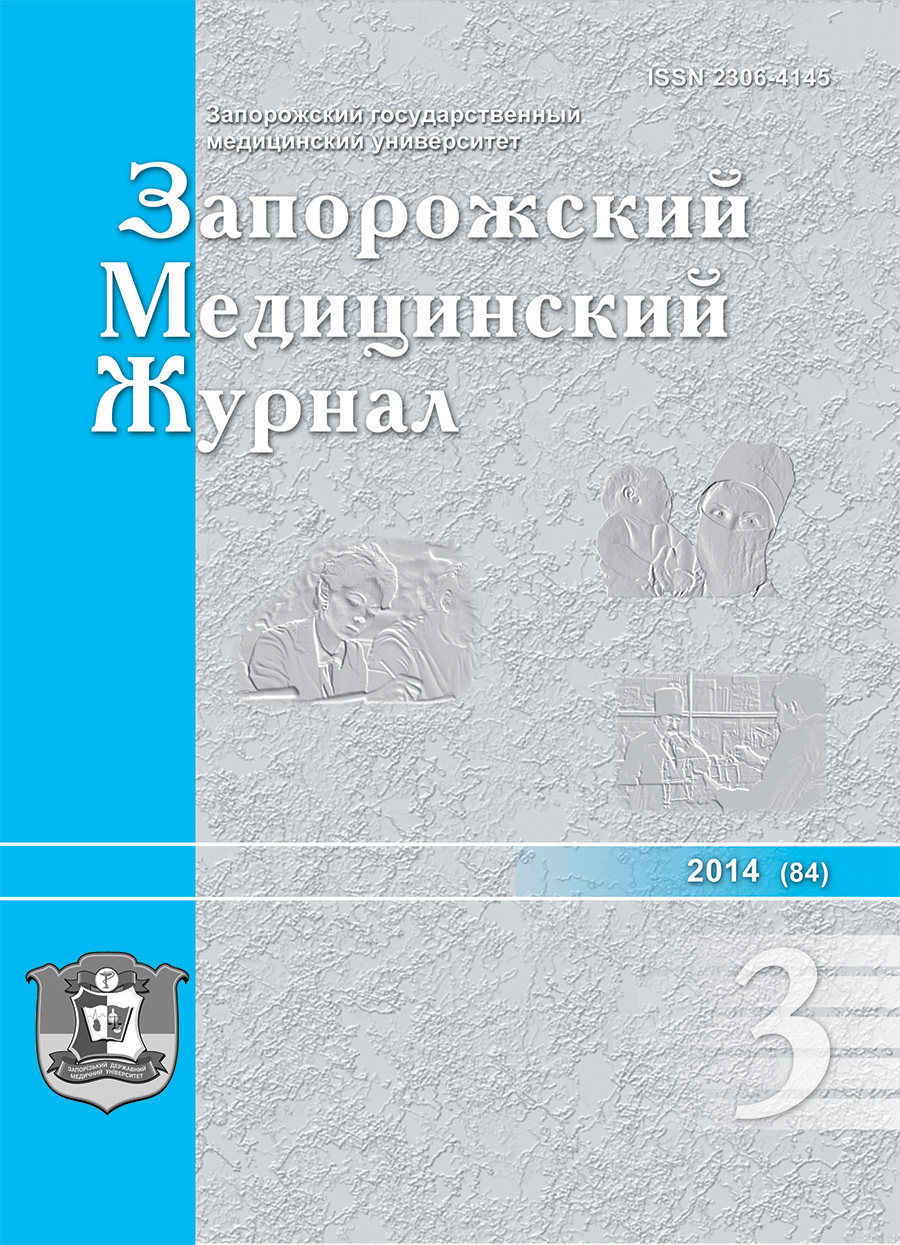Medical and psychological predictors of prodromal period of repeated episode of major depressive disorder
DOI:
https://doi.org/10.14739/2310-1210.2014.3.26035Keywords:
Major Depressive Disorder, Forecasting, Reseach, AnxietyAbstract
Aim. The identification of medical and psychological predictors of mental disorders are important for early diagnosis and therapy. The purpose of research – the identification of medical and psychological predictors of the prodromal period of the repeat episode of recurrent depressive disorder and investigation of their structural and dynamic characteristics.
Materials and methods. On the basis of City psychoneurological hospital № 2 of Donetsk 100 patients with depressive disorder were examined using anamnestic, catamnestic, psycho-diagnostic methods. The study established the following predictors of the prodromal period: the prevalence of anxiety over depressive phenomena, reduction of the harmonious type of attitude to the disease, reducing mediated memorizing, lengthening reaction time.
Conclusions. The analysis of the representation of the pathopsychological phenomens in the population of patients showed dynamic changes in the group of the predictors in the framework of the continuum «psychasthenia-anxiety-depression» in the form of consecutive change of phases of a prodromal period of repeat episode of recurrent depressive disorder.
References
Eaton, W. W., Shao, H., & Nestadt, G. (2008) Population-based study of first onset and chronicity in major depressive disorder. Archives of General Psychiatry, 65(5), 513–520. doi:10.1001/archpsyc.65.5.513.
Bonde, J. P. (2008). Psychosocial factors at work and risk of depression: a systematic review of the epidemiological evidence. Occupational and Environmental Medicine, 65(7), 438–445. doi: 10.1136/oem.2007.038430.
Hirschfeld, R. M. A. (2001) The Comorbidity of Major Depression and Anxiety Disorders: Recognition and Management in Primary Care. Primary Care Companion to the Journal of Clinical Psychiatry, 3(6), 244–254.
Holma, K. M., Holma, I. A., & Melartin, T. K. (2008) Long-term outcome of major depressive disorder in psychiatric patients is variable. Journal of Clinical Psychiatry, 69(2), 196–205.
Zigmond, A. S., Snaith, R. P. (1983) The hospital anxiety and depression scale. Acta Psychiatrica Scandinavica, 67(6), 361–370.
Bjelland, I. (2002) The validity of the Hospital Anxiety and Depression Scale. An updated literature review. Journal of Psychosomatic Research, 52(2), 69–77.
Vasserman, L. I., Iovlev, B. V., Karpova, E. B, & Vuks, A. Y. (2005) Psihologicheskaya diagnostika otnosheniya k bolezni. Posobie dlya vrachej [Psychological diagnostics of attitude towards the disease. Manual for physicians]. Saint Petersburg. [in Russian].
Luriya, A. R. (2002) Osnovy nejropsikhologii [Basics of neuropsychology]. Moscow. [in Russian].
Downloads
How to Cite
Issue
Section
License
Authors who publish with this journal agree to the following terms:
Authors retain copyright and grant the journal right of first publication with the work simultaneously licensed under a Creative Commons Attribution License that allows others to share the work with an acknowledgement of the work's authorship and initial publication in this journal. 

